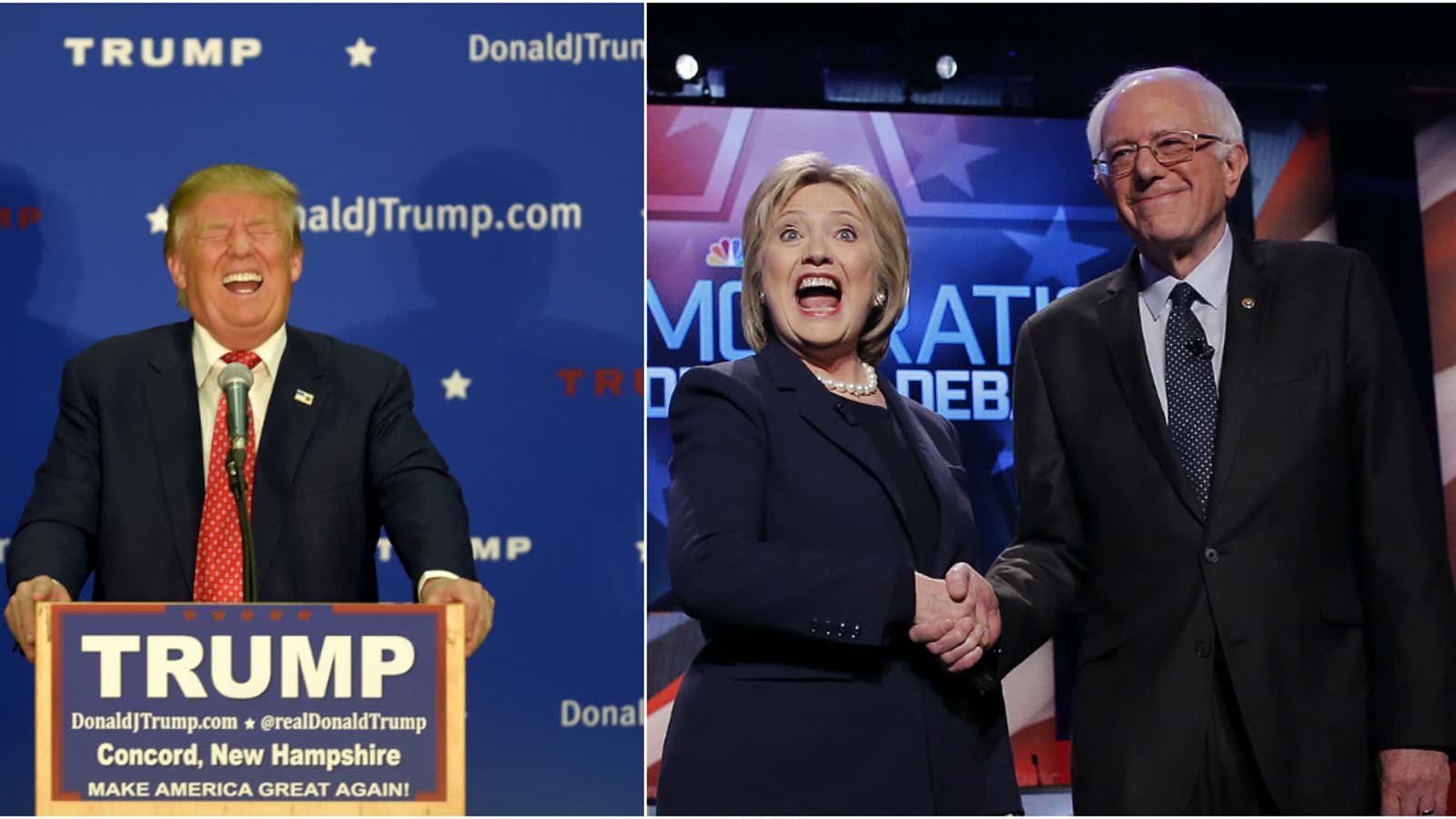Extremists of all stripes oppose the Trans-Pacific Partnership (TPP) trade agreement and it’s not just the fringes on the left and right. Former US Treasury Secretary Larry Summers recently remarked at the Council on Foreign Relations that the four leading contenders for the US presidential race all oppose it. TPP certainly got no love at the recent Democrat debate: Bernie Sanders said he supported “fair trade” but not “free trade.”
But there’s a difference between not supporting free trade and being against trade agreements. Trade agreements, such as TPP or the North American Free Trade Agreement (NAFTA), promote trade by eliminating tariffs and other barriers. But they also (as is the case of TPP) enforce patents, labor and environmental standards, copyrights, and other legal protections. Rather than unfettered globalization, trade agreements steer trade to certain countries and give participating governments more control on how trade is conducted. You can be against a trade agreement because you think there should be less trade (like Sanders and Donald Trump) or because you don’t like the structure of the agreement (which Hillary Clinton claims is her issue). But opposing TPP for either reason is a mistake.
The structure of TPP may not be perfect, but it is expected to increase real incomes in America by $131 billion and boost exports by $357 billion by 2030. In absolute terms, the United States will benefit most from the deal. And while there are things not to like in the deal—like allowing pharmaceutical companies to charge higher prices to developing countries—TPP maintains US’s leadership role in the global economy. Countries like Mexico, Vietnam, the Philippines, and Indonesia (who might join later) are already becoming larger participants in the global economy by trading more, educating their labor force and moving them to cities. If the US backs out on the deal it took years to negotiate (pending Congressional approval), as the leading candidates have promised, it will show it is too divided and populist to follow through on its word.
There’s good reason to be skeptical of trade, but the instinct toward less trade is also misplaced. For one, wages are stagnant, due in large part, to once well-paid manufacturing jobs moving abroad, and the gap between high and low earners has widened. Trade champions normally dismiss such costs. They acknowledge trade creates winners and losers (some people lose jobs), but on net everyone benefits because people find new jobs in different industries, often at higher pay, and goods become cheaper.
While it’s premature to call trade with China a net loss, there’s evidence that it may have caused more damage to the American economy than trade proponents expected. Americans who lost jobs aren’t finding better paid work in other industries and the middle class is eroding. But China is a special case because of its unprecedented size and rapid pace entering the global economy. TPP won’t be as radical, because it merely enhances trade with existing, developed trading partners.
Less trade may preserve some jobs in the short-run, but it does not keep the rest of the world from advancing. The emergence of China, deeper globalization, and technology placed the global economy in a transition phase. The result is many displaced workers who end up in lower paying jobs. In time, workers adapt, learn new skills, and find a way to be competitive. Separating American workers from the rest of the economy decreases incentives to gain the worlds’ most valuable skills, leaving future workers less competitive in the global economy. Sometimes it takes a generation, but in the past, after the transition played out, workers and consumers ended up wealthier. Retreating from trade slows down this process; it does a disservice to generations of future workers in order to help current workers today.
You need to look no further than growth trends over the 100 years. Countries open to trade thrived (the US and Singapore) while those who cut themselves off (China until recently, Argentina, and India) stagnated.
Trade skeptics are reclaiming the narrative around the last big deal, NAFTA, by saying it was bad for the American economy. But the evidence is more favorable on NAFTA—research shows a net benefit and wage gains for the US. Bill Clinton’s administration showed political courage by championing more trade with its neighbors. Hillary Clinton should show similar courage by defending her husband’s trade record and promising more of the same.
